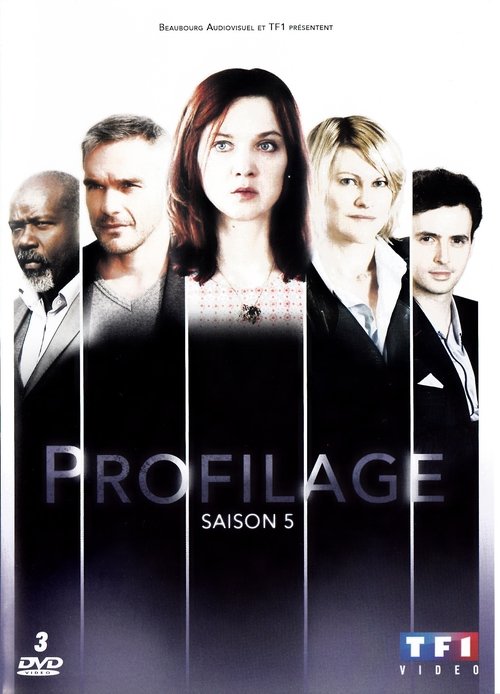
Ask Your Own Question
What is the plot?
In the opening episode of Season 5 of "Profiling Paris," the team is called to investigate a series of murders that have taken place in the heart of Paris. The first victim is discovered in a luxurious apartment, and the scene is set with the opulence of the surroundings contrasting sharply with the brutality of the crime. The victim, a well-known art dealer, is found with a rare painting missing from the wall, hinting at a possible motive tied to the art world. The team, led by the determined and insightful detective, begins to gather evidence, interviewing the victim's colleagues and friends, revealing a web of jealousy and rivalry.
As the investigation unfolds, the team discovers that the art dealer had been involved in a controversial deal that angered several local artists. One artist, in particular, becomes a person of interest due to his volatile temperament and past grievances against the victim. The detectives delve into the artist's background, uncovering a history of theft and deception, which raises suspicions. Tension builds as the team races against time to prevent another murder, fearing that the artist may strike again.
In a pivotal scene, the detectives set up a sting operation to catch the artist in the act of selling stolen artwork. The operation takes place in a dimly lit gallery, filled with tension as the team watches from the shadows. The artist arrives, and a confrontation ensues when he realizes he is being watched. A chase breaks out through the narrow streets of Paris, with the detectives pursuing the artist as he darts through alleyways and over rooftops. The chase culminates in a dramatic standoff on a rooftop, where the artist, cornered and desperate, reveals his motivations and the lengths he went to in order to reclaim his lost reputation.
As the season progresses, the team faces additional challenges, including a series of unrelated crimes that seem to be connected to the art world. Each episode introduces new suspects and red herrings, with the detectives piecing together clues that lead them deeper into a conspiracy involving forgery and organized crime. The emotional stakes rise as personal relationships within the team are tested, particularly between the lead detective and her partner, who struggle with their own pasts and the toll the job takes on their lives.
In a climactic episode, the detectives uncover a larger network of criminals involved in art theft, leading to a high-stakes confrontation in an underground auction house. The team infiltrates the auction, where stolen art is being sold to the highest bidder. Tension escalates as they attempt to gather evidence while avoiding detection. A fight breaks out when the criminals realize they are being set up, leading to a chaotic scene filled with gunfire and close calls. The detectives work together, showcasing their skills and teamwork, ultimately apprehending the ringleader and recovering the stolen art.
The season concludes with the team reflecting on their journey, the emotional toll of the cases they have solved, and the personal growth they have experienced. The final scene hints at new challenges ahead, as a mysterious figure is seen watching the team from a distance, suggesting that the world of crime in Paris is far from over. The characters are left to grapple with their choices and the impact of their work, setting the stage for future investigations.
What is the ending?
In the ending of "Profiling Paris" Season 5, the team successfully solves the case they have been working on, leading to the arrest of the perpetrator. The resolution brings a sense of closure to the characters, particularly for the lead investigator, who reflects on the emotional toll of the case. The season concludes with the team reaffirming their commitment to each other and their work, hinting at future challenges but also a strong bond among them.
As the final episode unfolds, the tension escalates in the investigation of a series of murders that have gripped Paris. The team, led by the determined and insightful lead investigator, gathers in their office, poring over evidence and discussing leads. The atmosphere is thick with urgency; each member feels the weight of the victims' families and the pressure to bring justice.
Scene by scene, the narrative progresses. The team splits up to follow different leads. One investigator interviews a key witness who provides a crucial piece of information about the suspect's whereabouts. The witness, visibly shaken, recounts a chilling encounter, and the investigator's empathy shines through as they comfort the witness, showcasing the emotional stakes involved.
Meanwhile, another team member delves into the suspect's background, uncovering a pattern of behavior that connects the dots between the murders. This investigator's determination is palpable, fueled by a personal connection to the case that drives them to push harder. The tension builds as they race against time, knowing that each moment counts.
As the investigation reaches its climax, the team converges on a location where they believe the suspect will strike again. The scene is fraught with suspense; the investigators communicate through earpieces, their hearts pounding as they prepare to confront the suspect. The lead investigator's internal conflict is evident; they grapple with the fear of failure and the desire to protect their team.
In a dramatic confrontation, the team apprehends the suspect, who is revealed to be someone with a deeply troubled past. The emotional weight of the case is felt by all, as they reflect on the lives lost and the impact of the crimes. The lead investigator, in particular, experiences a moment of catharsis, realizing the importance of their work and the lives they touch.
As the dust settles, the team gathers in their office once more. They share a moment of relief and camaraderie, acknowledging the toll the case has taken on them. Each character expresses their gratitude for one another, solidifying their bond. The lead investigator, looking out over the Paris skyline, contemplates the challenges ahead but feels a renewed sense of purpose.
In the final moments, the camera pans out, capturing the city of Paris as the sun sets, symbolizing both an end and a new beginning for the team. The season concludes with a sense of hope, emphasizing the resilience of the characters and their commitment to seeking justice, no matter the obstacles they may face in the future. Each character's fate is intertwined with the lessons learned throughout the season, leaving viewers with a poignant reminder of the complexities of human nature and the pursuit of truth.
Is there a post-credit scene?
In "Profiling Paris" Season 5, there is no post-credit scene. The episodes conclude without any additional scenes or teasers after the credits roll. Each episode wraps up the main storyline, focusing on the resolution of the case at hand and the emotional arcs of the characters involved, leaving no lingering moments or cliffhangers in the post-credit format. The series maintains a consistent narrative structure, focusing on the intricacies of crime-solving and character development throughout the episodes.
What are the main challenges that the character of Camille faces in Season 5?
In Season 5 of Profiling Paris, Camille grapples with the emotional fallout from her past relationships, particularly her complicated feelings towards her ex-partner. She faces challenges in balancing her personal life with her professional responsibilities as a profiler, often leading to moments of self-doubt and vulnerability. Her determination to solve cases is juxtaposed with her struggle to maintain her mental health, creating a rich internal conflict.
How does the relationship between Camille and her partner evolve throughout Season 5?
Throughout Season 5, the relationship between Camille and her partner deepens as they face various cases together. Initially marked by tension and unspoken feelings, their dynamic shifts as they learn to trust each other more. Key moments include shared vulnerabilities during high-stress situations, which lead to a stronger emotional bond. However, misunderstandings and external pressures test their partnership, creating a push-and-pull dynamic that keeps viewers engaged.
What specific case in Season 5 has the most impact on the team, and why?
One of the most impactful cases in Season 5 involves a series of art thefts that escalate into a murder investigation. The case not only challenges the team's investigative skills but also forces them to confront their own biases and assumptions about the art world. The emotional stakes rise as they uncover connections to a prominent figure in the community, leading to moral dilemmas that affect their personal lives and professional integrity.
How does the character of Lucas contribute to the investigations in Season 5?
Lucas plays a crucial role in Season 5 as the tech-savvy member of the team. His ability to analyze digital evidence and track online activity proves invaluable in solving cases. However, his character also faces personal challenges, including a family crisis that distracts him from his work. This duality adds depth to his character, as he must navigate his responsibilities while dealing with his own emotional turmoil.
What is the significance of the new character introduced in Season 5, and how do they affect the team dynamics?
In Season 5, a new character, a seasoned detective named Claire, is introduced. Her arrival brings a fresh perspective to the team but also creates friction as she challenges Camille's methods. Claire's assertive nature and different investigative style lead to initial clashes, but as the season progresses, her expertise becomes an asset. The tension between her and Camille ultimately fosters growth for both characters, highlighting themes of collaboration and respect in a high-stakes environment.
Is this family friendly?
"Profiling Paris" is a crime drama series that often delves into dark themes and complex emotional narratives. While it is not explicitly designed for children, it does not contain overtly graphic content. However, there are several aspects that may be considered objectionable or upsetting for younger viewers or sensitive individuals:
-
Crime and Violence: The series frequently explores criminal activities, including murder and other violent acts, which may be distressing.
-
Emotional Turmoil: Characters often experience intense emotional struggles, including grief, betrayal, and moral dilemmas, which could be heavy for younger audiences.
-
Themes of Loss: The show addresses themes of loss and the impact of crime on families, which may evoke sadness or discomfort.
-
Mature Relationships: There are instances of complex adult relationships that may not be suitable for younger viewers.
-
Psychological Tension: The series includes psychological elements that can create a sense of unease or anxiety, particularly in scenes involving investigations or confrontations.
Overall, while "Profiling Paris" is engaging and thought-provoking, it may not be appropriate for all children or sensitive viewers due to its mature themes and emotional depth.
















